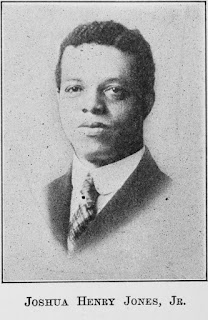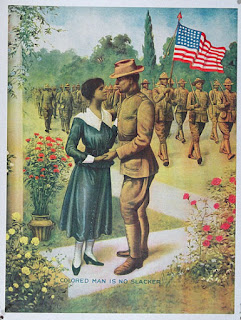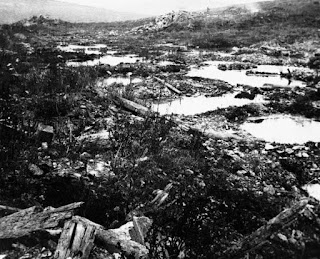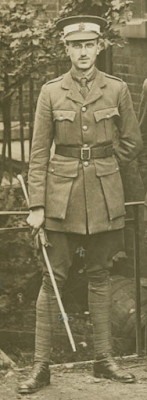The Heart of the World*
--Joshua Henry Jones, Jr.
In the heart of the world is the call for peace.
Up-surging symphonic roar.
'Tis ill of all clashings; it seeks release
 From fetters of greed and gore.
From fetters of greed and gore.The winds of the battlefields echo the sigh
Of hero souls slumbering deep;
Who gave all they had and now dreamlessly lie
Where the bayonets sent them to sleep.
Peace for the wealthy; peace for the poor;
Peace on the hillside and peace o'er the moor.
In the heart of the world is the call for right;
For fingers to bind up the wound,
Slashed deep by the ruthless harsh hand of might
When Justice is crushed to the ground.
'Tis ill of the fevers of fear of the strong –
 Of jealousies – prejudice – pride –
Of jealousies – prejudice – pride –Is there no ideal that's proof against wrong?
Man asks of the man at his side.
Right for the lowly; right for the great.
Right all to pilot to happiness’ gate.
In the heart of the world is the call for love.
White heart – Red – Yellow – and Black.
Each face turns to Bethlehem’s bright star above,
Tho’ wolves of self howl at each back.
The whole earth is lifting its voice in a prayer
That nations may learn to endure,
Without killing and maiming, but doing what’s fair
With a soul that is noble and pure.
Love in weak peoples; love in the strong.
Love that will banish all hatred and wrong.
In the heart of the world is the call of God.
East – West – and North – and South.
Stirring, deep-yearning, breast-heaving call for God
A-tremble behind each mouth.
The heart’s ill of torments that rend men’s souls.
Skyward lift all faiths in hope.
Across all the oceans the evidence rolls
Refreshing all life’s arid slopes.
God in the highborn; God in the low.
God calls us, world-brothers. Hark ye! and know.
*Inspired by the speech of President Woodrow Wilson at Boston on his return from the first sittings of the peace conference in 1919.
While Jones’ poem clearly responds to the First World War, its subtext also references the racist attacks that blacks confronted in America, the country that had vowed to fight “to make the world safe for democracy.” Vivid images in the poem evoke not only the battlefields of France, but the lynchings and injustices that were common occurrences on the home front: the “fetters of greed and gore,” the “ruthless harsh hand of might,” the “fevers of fear of the strong,” and the “torments that rend men’s souls.”
Despite the blood and brokenness of the past, the poem optimistically envisions a new world emerging from the ashes, a world in which rights are granted to both the great and the lowly, a world where love and acceptance for people of all colors is reborn “under the star of Bethlehem.” In this new age that dawns at the close of the First World War, the whole earth lifts its voice in prayer, turns its back on the destructive wolf call of the selfish ego, and learns to do what is fair, without “killing or maiming.” Jones’ poem affirms that the Great War was “the war to end all wars,” and that the peoples of the earth can walk together into a bright future as “world-brothers.”

 The brave sacrifice of African American soldiers inspired many with hope for change. In August of 1918, Isobel Field, writing for the African American magazine Vigilantes, was reprinted in The Crisis (founded in 1910, the official magazine of the NAACP), asserting, “There is a personage nearer home that we must be prepared to lose. Mistah Johnston, the Darktown Coon. He is no more. Gradually there has appeared in his place a stern young American, trained and alert, musket in hand. There is no hyphen to his name. His forefathers were Africans, but he is loyal United States.”
The brave sacrifice of African American soldiers inspired many with hope for change. In August of 1918, Isobel Field, writing for the African American magazine Vigilantes, was reprinted in The Crisis (founded in 1910, the official magazine of the NAACP), asserting, “There is a personage nearer home that we must be prepared to lose. Mistah Johnston, the Darktown Coon. He is no more. Gradually there has appeared in his place a stern young American, trained and alert, musket in hand. There is no hyphen to his name. His forefathers were Africans, but he is loyal United States.” Tragically, the sacrifices of those “stern young Americans” were not recognized, the peace did not last, and the name of Joshua Henry Jones, Jr. has been forgotten. Although Jones wrote the lyrics to the city of Boston’s official song (“Dear Old Boston”), served as Boston’s poet laureate, and published several volumes of poetry, he is almost unheard of today, another of the lost voices of the First World War.











